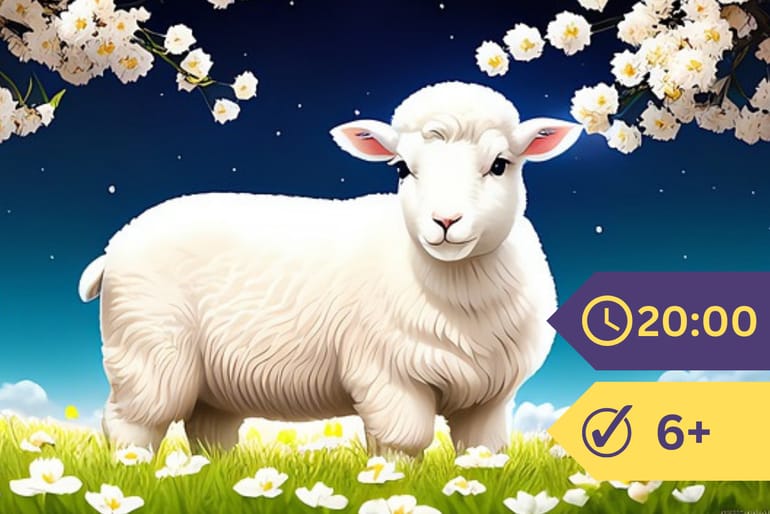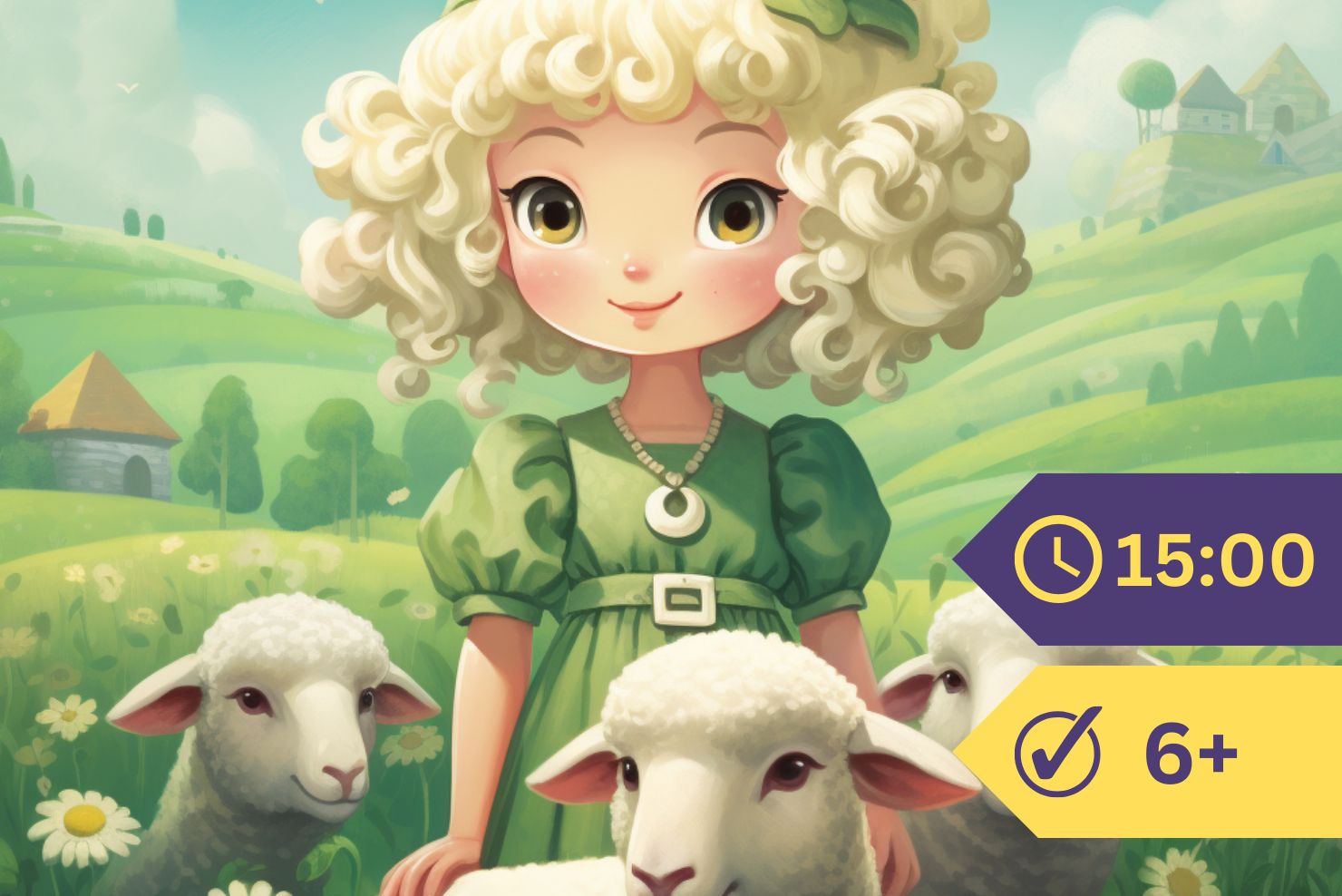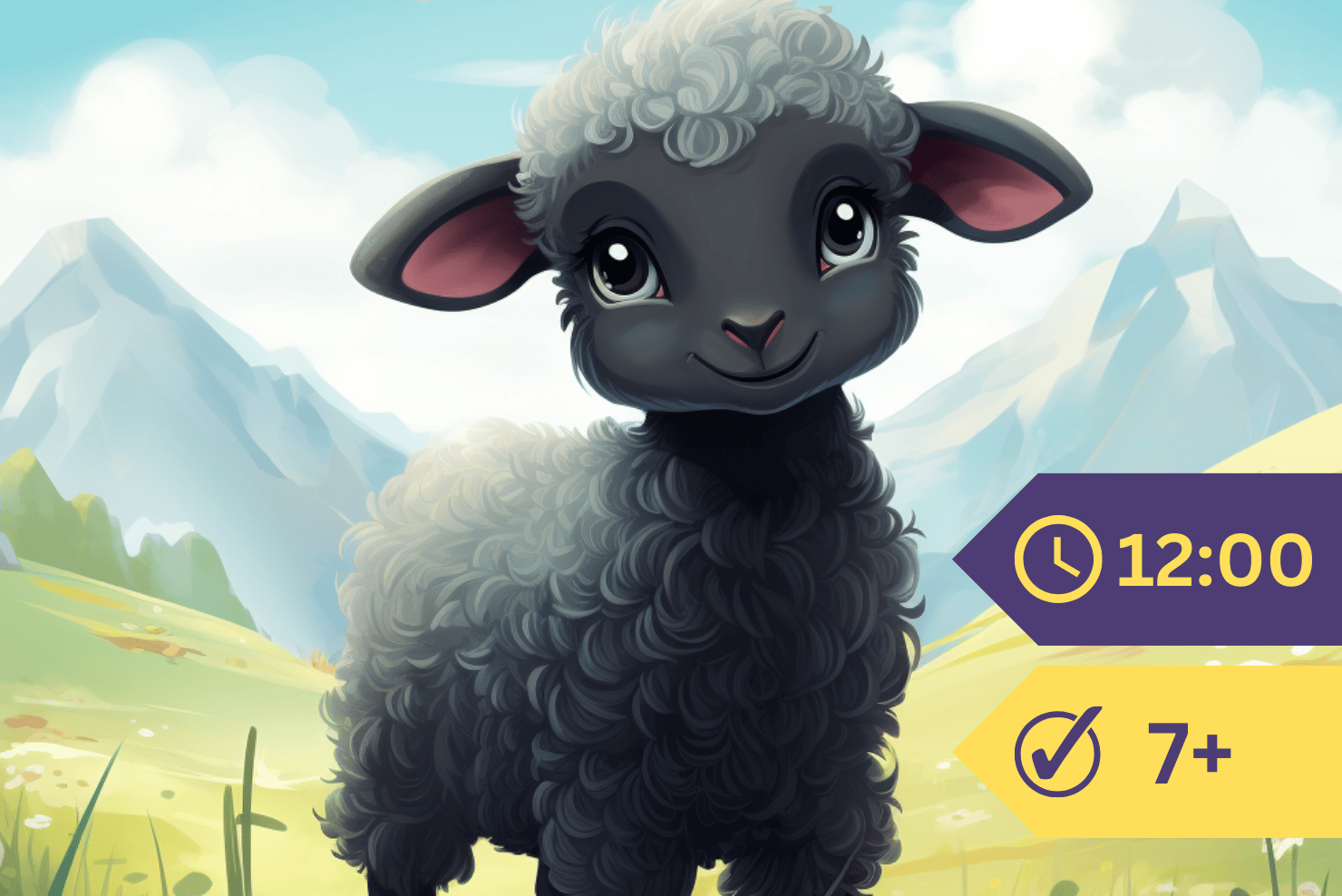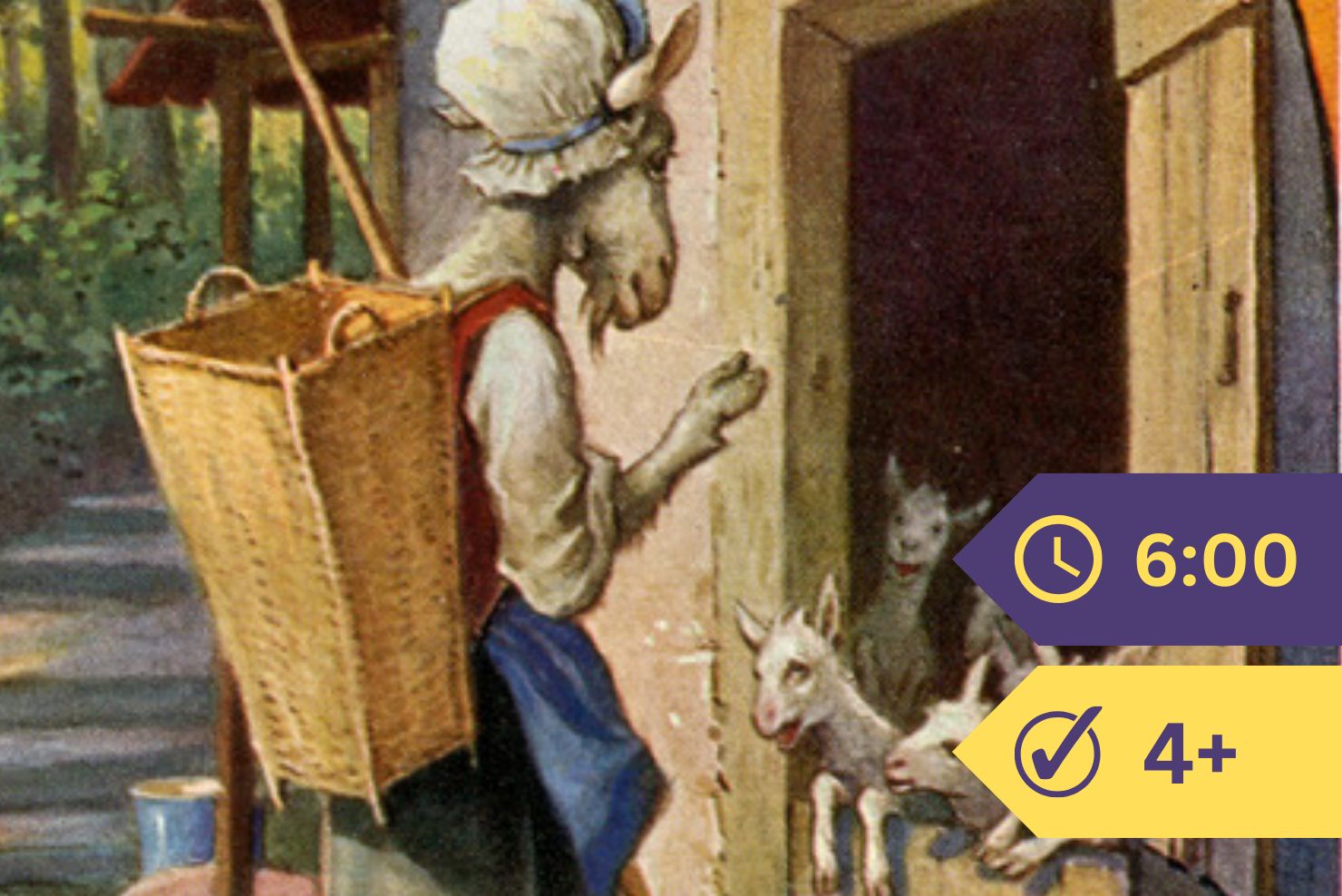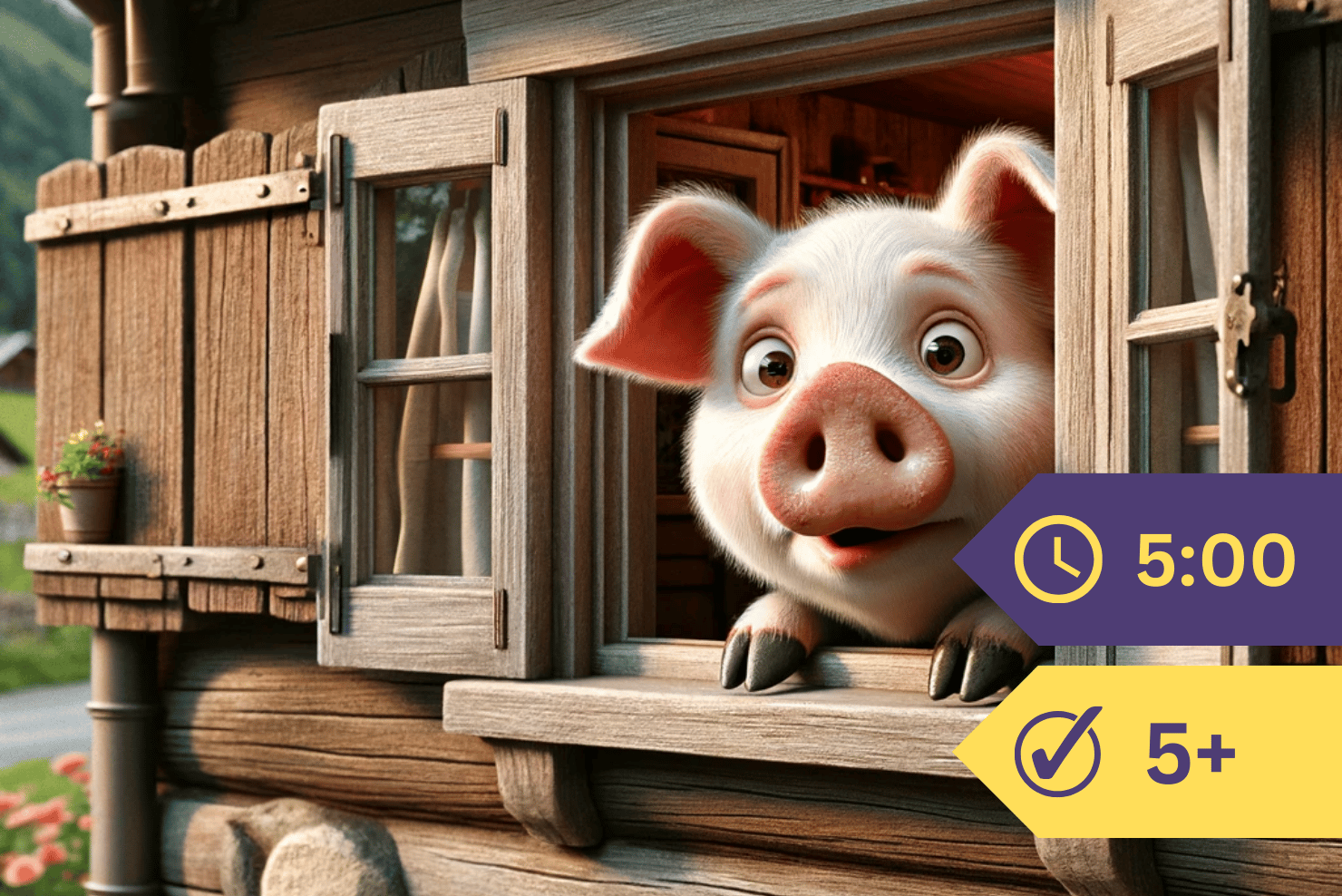A very warm and a very busy week followed, for the berries were punctually delivered at the farm, and successfully sold at the station; and, best of all, the sheep were as faithfully watered as two little pails and two little girls could do it. Every one else forgot them. Mr. Benson was a busy old gentleman far away in the city; Miss Alice was driving, boating, and picnicking all day long; and the men at the depot had no orders to care for the poor beasts. But Tilda and Patty never forgot; and, rain or shine, they were there when the long train came in, waiting to do what they could, with dripping pails, handfuls of grass, or green branches, to refresh these suffering travellers for whom no thought was taken.
The rough stage-drivers laughed at them, the brakemen ordered them away, and the station-master said they were “little fools;” but nothing daunted the small sisters of charity, and in a few days they were left alone. Their arms were very tired lifting the pails, their backs ached with lugging so much water, and mother would not let them wear any but their oldest clothes for such wet work; so they had their trials, but bore them bravely, and never expected to be thanked.
When Saturday came round, and Miss Alice drove to meet her father, she remembered the little girls, and looked for them. Up at the farm she enjoyed her berries, and ordered them to be promptly paid for, but was either asleep or away when they arrived, and so had not seen the children. The sight of Patty, hastily scrambling a clean apron over her old frock, as she waited for the train with her tray of fruit, made the young lady leave the car and go to meet the child, asking, with a smile,–
“Where is the brown-eyed sister? Not ill, I hope.
“No, ma’am; she’s watering the sheep. She’s so strong she does it better than I do, and I sell the baskets,” answered Patty, rejoicing secretly in the clean faded apron that hid her shabbiness.
“Ah, I forgot my lambs; but you were faithful to yours, you good little things! Have you done it every day?”
“Yes. Ma said, if we promised, we must do it; and we like it. Only there’s a lot of ’em, and we get pretty tired.” And Patty rubbed her arms as if they ached.
“I’ll speak to papa about it this very day. It will be a good time; for Mr. Jacobs, the president of the road, is coming up to spend Sunday, and they must do something for the poor beasts,” said Miss Alice, ashamed to be outdone by two little girls.
“That will be so nice. We read a piece in a paper our teacher lends us, and I brought it down to show Mr. Weed, the depot man. He said it was a shame, but nobody could help it; so we thought we’d tell him about the law we found.” And Patty eagerly drew a worn copy of “Our Animals” from her pocket to show the little paragraph to this all-powerful friend who knew the railroad king.
Miss Alice read:–
“An act of Congress provides that at the end of every twenty-eight hours’ journey animals shall be given five hours’ rest, and duly fed and watered, unless shipped in cars having accommodations for the care of live-stock on board.”
“There!” cried Patty, “that’s the law; and ma says these sheep come ever so far, and ought to be watered. Do tell the president, and ask him to see to it. There was another piece about some poor pigs and cows being ninety-two hours without water and food. It was awful.”
“I will tell him. Here ‘s our train. Run to your berries. I’ll find papa, and show him this.”
As Miss Alice spoke, the cars thundered into the little station, and a brief bustle ensued, during which Patty was too busy to see what happened.
Mr. Benson and another stout old gentleman got out; and the minute Alice saw them, she said very earnestly,–
“Wait a little, please; I want to settle a very important piece of business before we go home.”
Then, while the gentlemen listened indulgently, she told the story, showed the bit in the paper, and pointing out Patty, added warmly,–
“That’s one good child. Come and see the other, and you will agree with me that something ought to be done to relieve their kind little hearts and arms, if not out of mercy to the animals, we have been deaf too long.”
“My wilful girl must have her way. Come and get a whiff of fresh air, Jacobs.” And Mr. Benson followed his daughter across the track, glad to get out of the bustle.
Yes, Tilda was there, and at work so energetically that they dared not approach, but stood looking and laughing for a moment. Two pails of water stood near her, and with a long-handled dipper she was serving all she could reach; those which were packed on the upper tier she could only refresh by a well-aimed splash, which was eagerly welcomed, and much enjoyed by all parties,–for Tilda got well showered herself, but did not care a bit, for it was a melting July day.
“That is a very little thing to do, but it is the cup of cold water which we have forgotten,” said Miss Alice, softly, while the air was full of cries of longing as the blue lake shone before the thirsty beasts.
“Jacobs, we must attend to this.”
“Benson, we will. I’ll look into the matter, and report at the next meeting.”
That was all they said; but Alice clapped her hands, for she knew the thing would be done, and smiled like sunshine on the two old gentlemen, who watched the long train rumble away, with shakes and nods of the gray heads, which expressed both pity and determination.
The other train soon followed, and Patty came running over with her empty tray and a handful of silver to join Tilda, who sat down upon her upturned pail, tired out.
“Papa will see to it, children; and, thanks to you, the sheep will soon be more comfortable,” said Miss Alice, joining them.
“Oh, goody! I hope they’ll be quick; it’s so hot, there were many dead ones today, and I can’t help ’em,” answered Tilda, fanning herself with her bonnet, and wiping the drops off her red face.
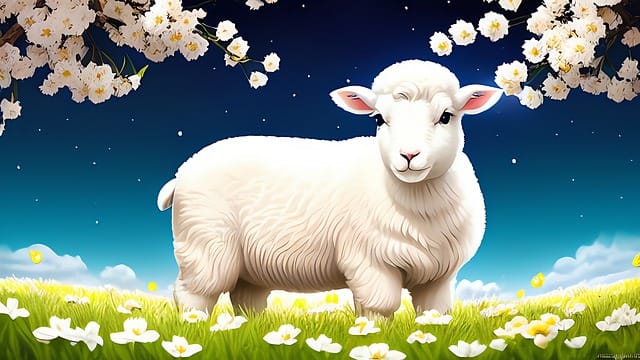
Miss Alice took a pretty straw fan out of her pocket and handed it to her, with a look of respect for the faithful little soul who did her duty so well.
“Ask for me when you come to the farm tonight. I shall have some hats and aprons for you, and I want to know you better,” she said, remembering the broad-brimmed hats and ready-made aprons in the village store.
“Thank you, ma’am. We’ll come. Now we won’t have to do this wet work we’d like to be neat and nice,” said Patty, gratefully.
“Do you always sell all your berries down here?” asked Miss Alice, watching Tilda tie up the dimes.
“Yes; and we could sell more if both of us went. But ma said we were making lots of money, and it’s best not to get rich too fast,” answered Tilda, wisely.
“That’s a good thing for us to remember, Benson, especially just now, and not count the cost of this little improvement in our cattle cars too closely,” said Mr. Jacobs, as the old gentlemen came up in time to hear Tilda’s speech.
“Your mother is a remarkable woman; I must come and see her,” added Mr. Benson.
“Yes, sir; she is. She’d be pleased to see you any day.” And Tilda stood up respectfully as her elders addressed her.
“Getting too rich, are you? Then I suppose you don’t want me to invest this in your business for me?” asked Mr. Jacobs, holding up two silver dollars.
Two pairs of eyes sparkled; and Patty’s hand went out involuntarily, as she thought how many things she could get with all that money.
“Would they buy a lamb? And would you like to use it that way?” asked Tilda, in a business-like tone.
“I guess Miller would let you have one for that sum if Miss Alice makes the bargain, and I should very much like to start a flock if you would attend to it for me,” answered Mr. Jacobs, with a laughing nod at the young lady, who seemed to understand that way of making bargains.
“We’d like it ever so much! We’ve wanted a lamb all summer; and we’ve got a nice rocky pasture, with lots of pennyroyal and berry bushes and a brook, for it to live in. We could get one ourselves now we are so rich; but we’d rather buy more things for ma, and mend the roof before the snow comes: it’s so old, rain runs down on our bed sometimes.”
“That’s bad; but you seem fond of water, and look as if it agreed with you,” said Mr. Jacobs, playfully poking Tilda’s soaked apron with his cane.
They all laughed; and Mr. Benson said, looking at his watch,–
“Come, Alice, we must go. I want my dinner, and so does Jacobs. Goodbye, little water-witches. I’ll see you again.”
“Do you suppose they’ll remember the lambs and hats, and all they promised?” asked Patty, as the others turned away.
“I don’t believe they will. Rich folks are so busy having good times they are apt to forget poor folks, seems to me,” answered Tilda, shaking her head like a little Solomon.
“Bless my heart, what a sharp child that is! We must not disappoint her; so remind me, Alice, to make a memorandum of all this business,” whispered Mr. Benson, who heard every word.
“The President is a very nice man, and I know he‘ll keep his word. See! He dropped the money in my tray, and I never saw him do it,” cried Patty, pouncing on the dollars like a robin on a worm.
“There’s a compliment for you, and well worth the money. Such confidence is beautiful,” said Mr. Jacobs, laughing.
“Well, I’ve learned a little lesson, and I’ll lay it to heart so well I won’t let either of you forget,” added Alice, as they drove away; while Tilda and Patty trudged home, quite unconscious that they had set an example which their elders were not ashamed to follow.
So many delightful things happened after this that the children felt as if they had got into a fairy tale. First of all, two nice rough straw hats and four useful aprons were given them that very night. Next day Miss Alice went to see their mother, and found an excellent woman, trying to bring up her girls, with no one to help her.
Then somehow the roof got mended, and the fence, so that passing cattle could not devastate the little beds where the children carefully cultivated wild flowers from the woods and hills. There seemed to be a sudden call for berries in the neighborhood,–for the story of the small Samaritans went about, and even while they laughed, people felt an interest in the children, and were glad to help them; so the dimes in the spoutless teapot rose like a silver tide, and visions of new gowns, and maybe sleds, danced through the busy little brains.
But, best and most wonderful of all, the old gentlemen did not forget the sheep. It was astonishing how quickly and easily it was all done, when once those who had the power found both the will and the way. Every one was interested now: the stage-drivers joked no more; the brakemen lent a hand with the buckets while waiting for better means of relief; and cross Mr. Weed patted Tilda and Patty on the head, and pointed them out to strangers as the “nice little girls who stirred up the railroad folks.” Children from the hotel came to look at them, and Elviry Morris was filled with regret that she had no share in this interesting affair.
Thus the little pail of water they offered for pity’s sake kept the memory of this much-needed mercy green till the lake poured its full tide along the channel made for it, and there was no more suffering on that road.
The first day the new pumps were tried every one went to see them work; and earliest of all were Tilda and Patty, in pink aprons and wreaths of evergreens round their new hats, in honor of the day. It was sweet to see their intense satisfaction as the water streamed into the troughs, and the thirsty sheep drank so gratefully. The innocent little souls did not know how many approving glances were cast upon them as they sat on a log, with the tired arms folded, two trays of berries at their feet now, and two faces beaming with the joy of a great hope beautifully fulfilled.
Then a party from the hotel appeared; and something was evidently going to happen, for the boys and girls kept dodging behind the cars to see if they were coming. Tilda and Patty wondered who or what, but kept modestly apart upon their log, glad to see that the fine folks enjoyed the sight about as much as they did.
A rattle was heard along the road, a wagon stopped behind the station.
“More pumps or troughs, I guess. Well, we can’t have too many,” said Tilda, with an eye to the business under way.
“I wish those folks wouldn’t stare at us so much. I suppose it’s the new aprons with pockets,” whispered Patty, longing for the old cape-bonnet to retire into.
But both forgot pumps and pockets in a moment, as a striking procession appeared round the corner. Mr. Benson, trying not to laugh, but shining with heat and fun, led a very white lamb with a red bow on its neck; and behind him came Miss Alice, leading another lamb with a blue bow. She looked very much in earnest, and more like a good fairy than ever, as she carried out her little surprise. People looked and laughed; but every one seemed to understand the joke at once, and were very quiet when Mr. Benson held up his hand, and said, in a voice which was earnest as well as merry,–
“Here, my little girls, are two sheep to thank you for your pity, and to prove, I hope, that rich people are not always too busy with their own good times to remember their poorer neighbors. Take them, my dears, and God bless you!”
“I didn’t forget my lambs this time, but have been taming these for you; and Mr. Jacobs begs you will accept them, with his love,” added Miss Alice, as the two pretty creatures were led up to their new owners, wagging their tails and working their noses in the most amiable manner, though evidently much amazed at the scene.
Tilda and Patty were so surprised that they were dumb with delight, and could only blush and pat the woolly heads, feeling more like story-book girls than ever. The other children, charmed with this pleasant ending to the pretty story, set up a cheer; the men joined in it with a will; while the ladies waved their parasols, and all the sheep seemed to add to the chorus their grateful “Baa! baa!”

